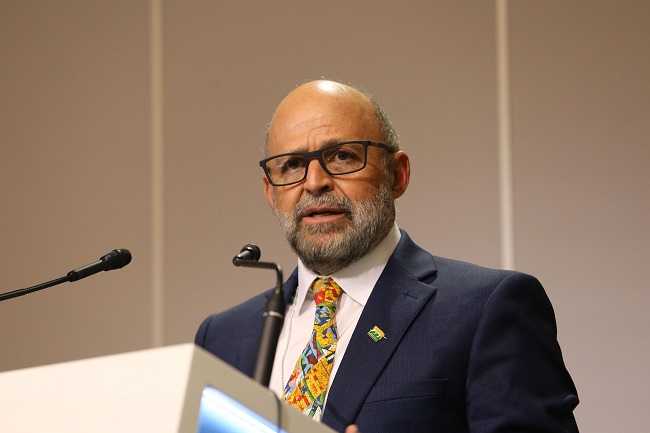“Our planet’s vital signs are flashing red,” declared the Global Environment Facility’s (GEF) CEO and Chairperson, Carlos Manuel Rodríguez, on the first day of the 68th session of the GEF Council, the Facility’s governing body, on December 16, 2024.

“We need to work urgently to avert the collapse of the global ecological systems that maintain life on Earth. The decisions we take over the next 12-18 months are critical,” he added.
With the stage thus set, the 68th Council began work on steps needed to reform the GEF Partnership – the 186 countries, Secretariat, 18 Implementing Agencies, as well as civil society organisations (CSOs), Indigenous Peoples, and the private sector that participate in the GEF – and prepare for the next and ninth GEF Trust Fund replenishment (GEF-9), covering the period 2026-2030, which will determine the GEF’s contribution toward achieving the 2030 Agenda on Sustainable Development and its Sustainable Development Goals (SDGs).
The 68th Council’s decisions included launching the 18-month negotiation process for GEF-9 in January 2025. During the week, top officials from multilateral environmental agreements (MEAs) that the GEF serves reminded the Council of the messages from the recent biodiversity, climate, and desertification Conferences of the Parties (COPs) regarding their conventions’ resource needs through 2030, as well as from civil society representatives and others. This promoted spirited Council debates about the levels of ambition, reform, and innovation that GEF-9 must reflect at a particularly challenging time in the world.
With some of these needs and challenges front-of-mind, the 68th Council undertook improving the delivery of benefits to recipient countries, particularly least developed countries (LDCs) and small island developing States (SIDS). Among other actions, the Council launched a process of policy and procedural reform to streamline the GEF project cycle and get money into recipients’ hands sooner.
In addition, the Council agreed to consider another expansion of the ranks of GEF Implementing Agencies, but this time with specific objectives in mind, for example, seeking actors with expertise and experience in underserved regions, and agencies with a track record in engaging civil society and the private sector. Members also decided forthcoming Council sessions would consider options, including set-asides and incentives, to encourage greater balance in the distribution of projects and resources among GEF Implementing Agencies and to further engage multilateral development banks (MDBs) that attract substantial cofinancing and the private sector.
The nearly $700 million Work Programme approved by the 68th Council focused heavily on chemicals and waste at a time when the GEF hopes to prove to the multilateral community that it has the capacity to serve as the financial mechanism for a global plastics treaty being negotiated and that it could play a significant role in realizing the vision of the Global Framework on Chemicals adopted in 2023.
The chemicals and waste component of the latest Work Programme includes initiatives focused on agrochemicals, tourism, and the elimination of polychlorinated biphenyls (PCBs). The Work Programme activities also include the establishment of a global Chemicals and Wastes Financing Partnership Facility to be housed within the Asian Development Bank (ADB) and specifically designed to address the global funding gap for sound chemicals and waste management.
The 32 members of the GEF Council, representing 186 countries, met virtually from December 16 to 20, 2024, with the active participation of representatives of CSOs, Indigenous Peoples, and youth.
